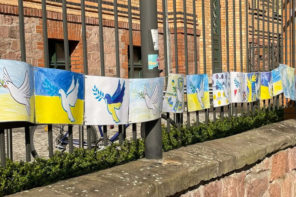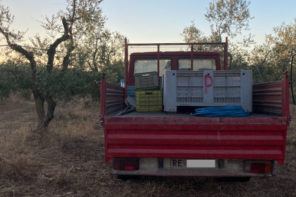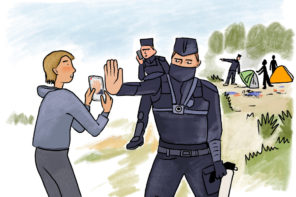What are the unintended consequences of anti-smuggling and anti-trafficking policies?
From the perspective of media, border authorities, and public opinion, human smuggling is perceived as an exploitative business that, more often than not, spirals downward to forms of trafficking and coerced migration. In the context of the Syrian war, for example, Syrian asylum seekers are depicted by and large as victims exploited and deceived by a cartel of violent men who prey on their vulnerability.
Against this background, anti-smuggling and anti-trafficking policies become the only effective measures in efforts to fight organised crime and rescue Syrian refugees. The findings of my research contradict this widely accepted belief. Over the course of my fieldwork, I came to recognise how human smuggling acquired social and moral significance among its actors. Bonds of solidarity and forms of cooperation between people characterised the interaction between facilitators and their customers.
Exploitation is, at times, consciously and willingly endorsed by its ‘victims’.
Of course, smuggling often involved overt forms of exploitation too and sometimes turned into what is commonly described as trafficking. However, one of the main conclusions of my research is that exploitation is, at times, consciously and willingly endorsed by its ‘victims’ as a means to enhance their own mobility.
In this sense, we need to move beyond the discussion of whether irregular migration is best defined in terms of trafficking or smuggling and examine how these phenomena are ultimately interconnected, insofar as they are different means by which people move in situations where channels of legal entry are limited if not absent. Instead of lightly conflating human smuggling with human trafficking, we would better serve those on the move by addressing the overall consequences of stricter border regimes and the militarisation of border control.
Are border fortifications/restrictions a useful or counterproductive response to mass movements of people?
The so-called ‘migrant crisis’ in the Mediterranean has persuaded many political leaders all over Europe to consider the construction of a stronger wall north of Greece and the further militarisation of borders across the Western Balkan route as the only viable option in the fight against human smuggling and irregular migration. Could these be the real solution to the current crisis? I believe not.
Empirical evidence shows that the tightening of border control generally exposes migrants to greater dangers. Smugglers are well aware that they move on hazardous ground, and thus they use a variety of strategies – such as using more circuitous and dangerous routes or unsafe points of embarkation and disembarkation – to limit the chances of apprehension. My research and that of others also demonstrate that the militarisation of border control generates a protracted condition of illegality that ultimately leads irregular migrants to become smugglers themselves.
Smugglers often constitute the only available option for those migrants who flee a situation of immediate danger and distress. If the intended goal is the suppression of smuggling networks, security measures can be effective only if accompanied by other solutions. A truly effective answer to human smuggling would require the EU and its state members to concentrate on reducing ‘demand’ more than on curbing ‘supply’.
Accordingly, the first decisive step toward a more durable – yet also more radical – solution for the current crisis would be to open new channels of legal entry and the reinforcement of existing ones for asylum seekers, who often constitute the majority of people smuggled by sea.
→ Back to the virtual roundtable.









